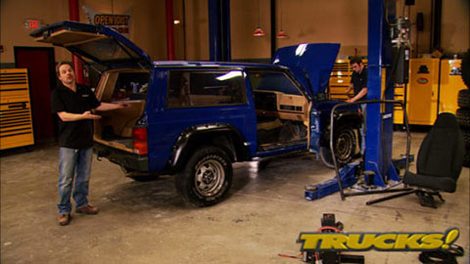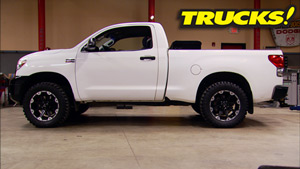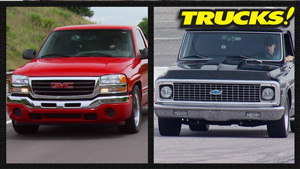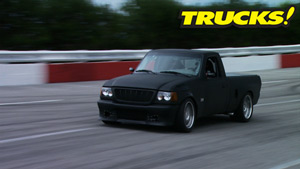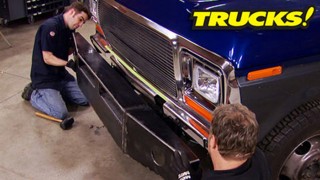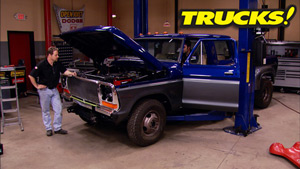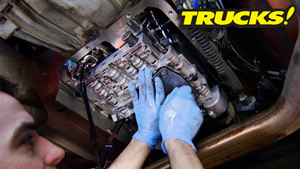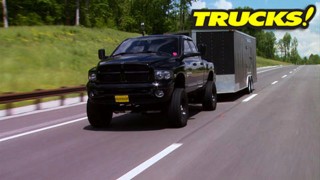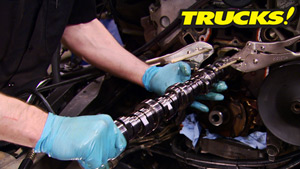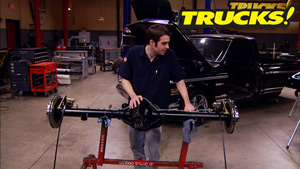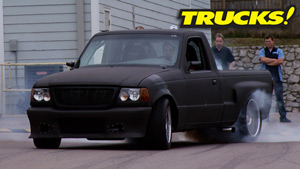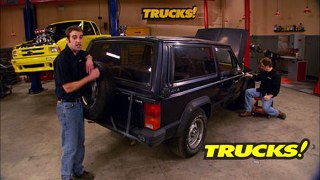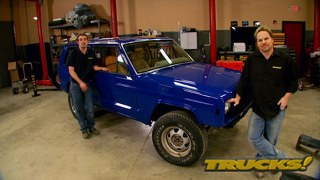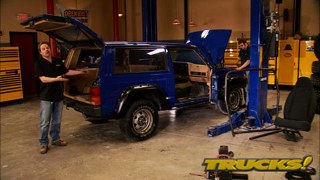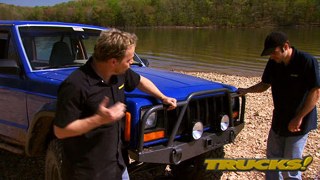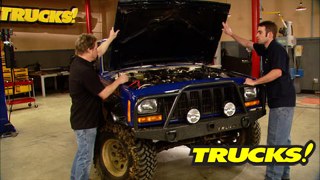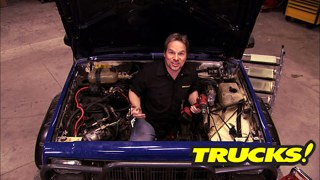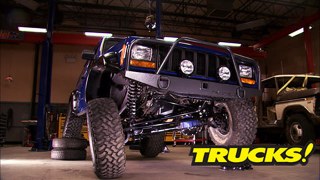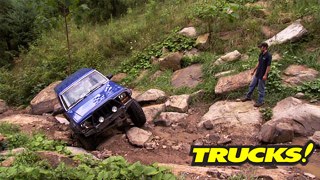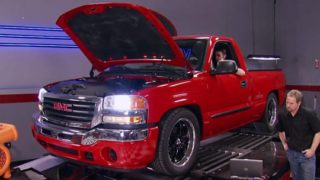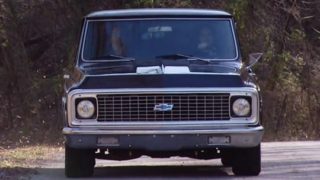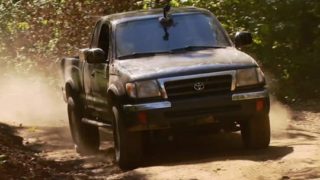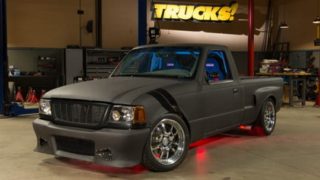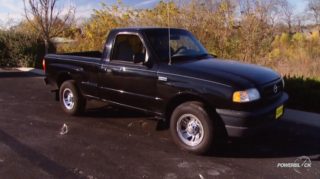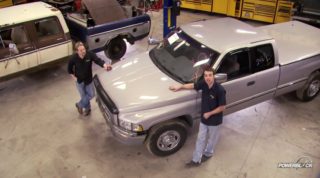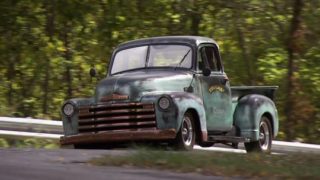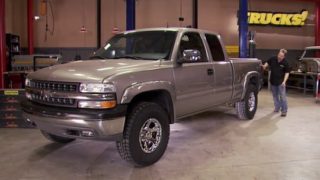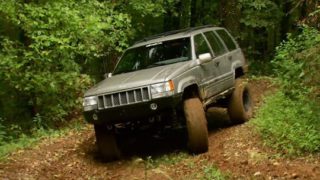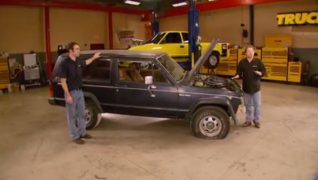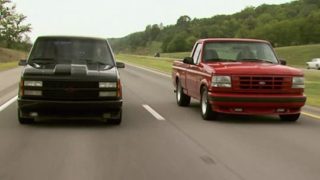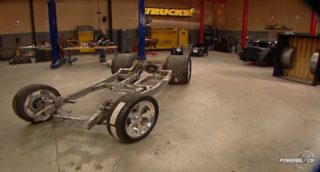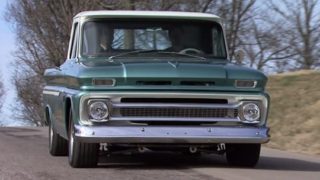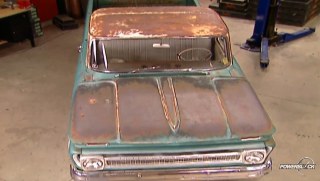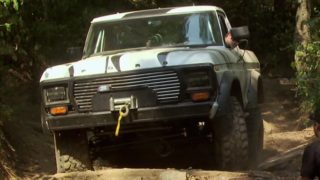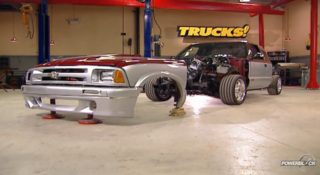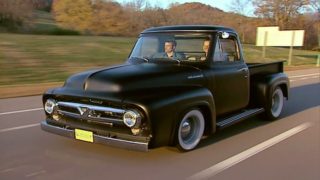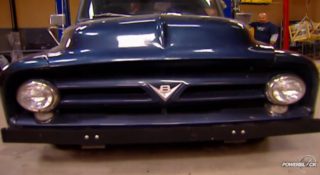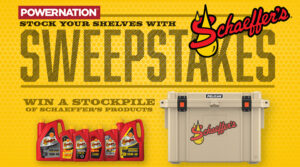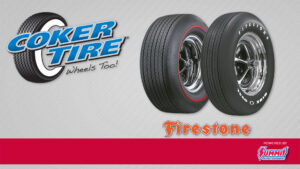More Cheep Cherokee Episodes
Trucks! Builds
Want more content like this?
Join the PowerNation Email NewsletterParts Used In This Episode
Airaid
Replacement air filter.
All Star Auto Salvage
Used rear 8.8 axle housing, used front axle shafts, battery box.
Auto Body Color & Supply Co.
Single stage Acrylic enamel PPG paint and catalyst.
Auto Body Toolmart
Five ton Mighty Pull frame puller, hook and chain sets, floor anchor pots, Mo-Clamps.
Bushwacker
Five inch "cutout" flares for 84-96 Jeep XJ two door models.
Cherry Bomb
2 1/4" Cherry Bomb Glasspack muffler.
Hypertech
Max Energy E-CON economy Power Programmer.
JD Squared Inc.
Model 3 tubing bender.
Lincoln Electric
Lincoln Mig welder and equipment.
Midas
Machining rotor surfaces.
O'Reilly Auto Parts
Leaf spring perches, u-bolts, driveshaft flange, brake cleaner.
Quadratec
15 x 8, 5 x 4.5, 4 inch B/S, Silver Cragar 399 series.
Quadratec
48 inch hi-lift jack, handle keeper, bumper mount.
Quadratec
Accel Super Tune Up kit, upgraded fuel pump.
Quadratec
Bestop Trailmax high back denim seats.
Quadratec
Ected differential for Dana 30, ring and pinion gears, Overhaul kit.
Quadratec
Mile Marker PE8000 winch and winch mount adapter plate.
Quadratec
Skyjacker three inch value Flex Lift system with front coil springs, Nitro shocks and rear leaf spring replacements, polyurethane one inch spacers.
Quadratec
Spidertrax wheel spacers.
Quadratec
Steel front fenders both drivers and passenger side, manual mirrors for both sides, side marker lens for both sides, parking lamps for both sides, front header panel.
Summit Racing
33x12.50R15 BFG Mud-Terrain KM.
